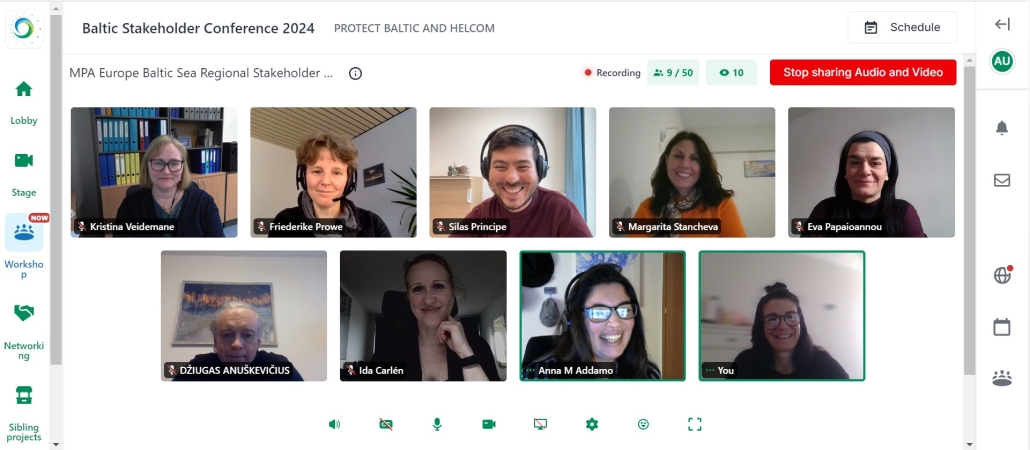Baltic sea stakeholder workshop
11/03/2024
Last week the MPA Europe team hosted two regional workshops for stakeholders of the Baltic Sea region in Espoo, Finland, in collaboration with the PROTECT BALTIC project. We were joined by 16 stakeholders for our in-person workshop and another 8 for our online one, from a range of interests including national authorities, regional organisations, academic institutes, NGOs, maritime industry representatives and certification bodies.
During each workshop we presented the goals and approaches of the MPA Europe project and our results to date. These include the first marine ecosystem classification of Europe’s waters, from sea surface to near seabed, which reveals that the Baltic Sea forms a unique cluster in Europe in terms of surface waters and shares characteristics with the Black Sea for near seabed waters. We also presented our species distribution models and showed how for some the impacts of climate change on their overall ranges is likely to be quite limited. Lastly, we shared the results of our work on blue carbon sediments by habitat types across Europe and the key environmental drivers influencing these, such as wave exposure and water temperature.
We then invited our stakeholders to share their questions, comments, and proposals on the following three areas:
- How can the results from MPA Europe support science-based marine spatial planning, at national, trans-boundary or regional scales?
- How can our results strengthen existing marine protected areas?
- How can our results support extending networks of existing marine protected areas?
Many ideas were shared by stakeholders and discussed among the in person and online groups. Stakeholders also put forward suggestions for case studies and we will co-identify with stakeholders at least one case use for the region. We are now distilling the fruits of these two discussions, both in person and online, into a short report of the workshops. This report will be shared with all participants and other stakeholders from the Baltic Sea region that are engaging with our project and will also provide insights for our Policy Brief next year.

We would like to thank all those who attended these workshops and kindly offered their ideas. We would also like to express our deep appreciation to the PROTECT BALTIC team for kindly collaborating with us on this milestone event for stakeholders interested in supporting more and better protection for the Baltic Sea in the years to come. We hope to continue working closely with the PROTECT BALTIC project as their project gathers pace.




